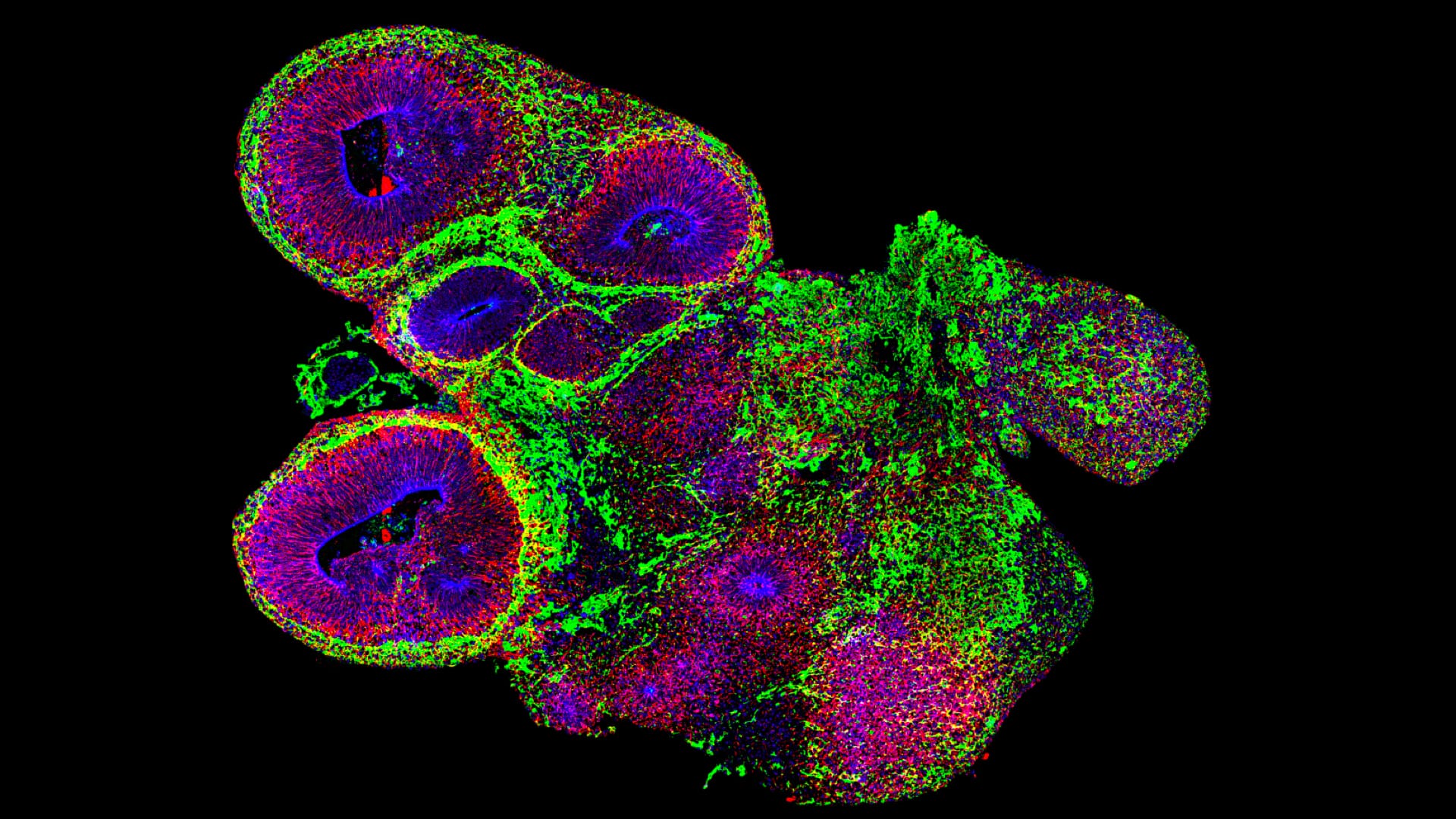Integrated HCA Organoid Atlases of Brain and Endoderm Tissues
The first two flagship HCA Organoid Atlases are now available on the HCA Data Portal.

Organoids are tiny three-dimensional tissue cultures that are grown in the laboratory. These ‘mini organs’ can mimic organ development and have huge potential for understanding human biology in health and disease.
The HCA Organoid Biological Network has created two flagship integrated HCA Organoid Atlases. The HCA Neural and Endoderm Organoid Cell Atlases incorporate more than 2 million cells from 90 data sets. They bring together a broad range of single-cell transcriptome datasets of organoids derived from the neuroectoderm (for brain tissue) and the endoderm (for gut and respiratory tract tissues).
Human stem-cell derived organoids have many biomedical applications, including drug development and personalized therapies. They can also provide the recipe for tissue engineering, with the ultimate goal of advancing regenerative medicine and producing functional biological structures that can be transplanted into patients.
Openly available via the HCA Data Portal, the HCA Organoid Atlases will be highly useful to compare with primary reference atlases in order to assess, benchmark and streamline new organoid protocols. They will also enable researchers to determine how closely organoids match tissues, and to characterize diseased states.
Many members of the HCA Organoid Biological Network contributed datasets, both published and unpublished, and supplied metadata and biological information to ensure the usefulness of the Atlases. A rigorous approval process from the HCA Organizing Committee ensures that HCA Atlases are of the highest quality.
The HCA Organoid Biological Network is coordinated by Christoph Bock and Barbara Treutlein, and these two HCA Organoid Atlases are only the first step. The team has already started to develop further organoid atlases, which will follow.
For more information see the Organoid Biological Network at the HCA Data Portal.
